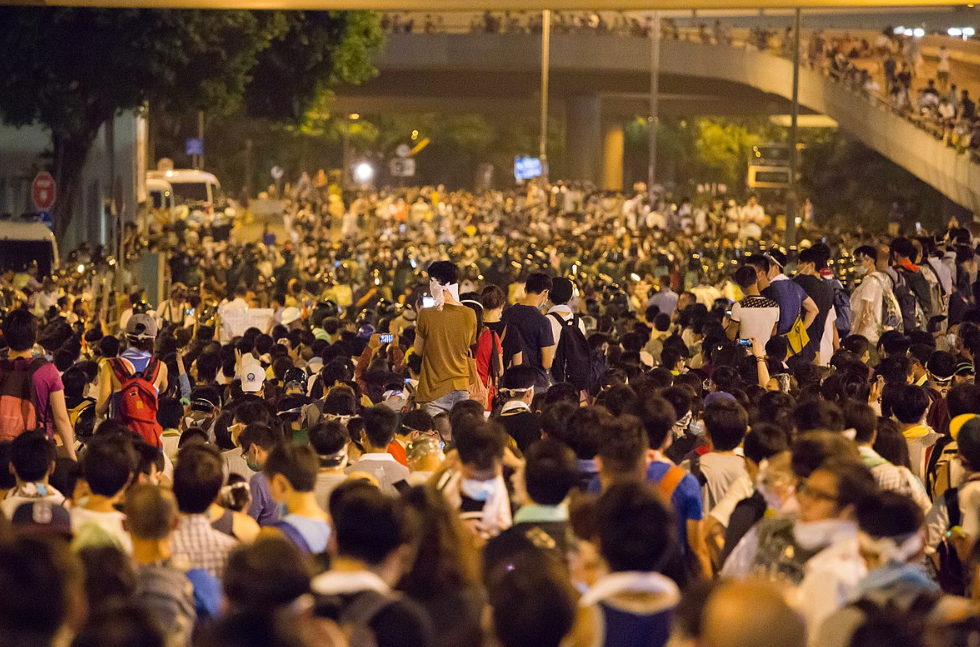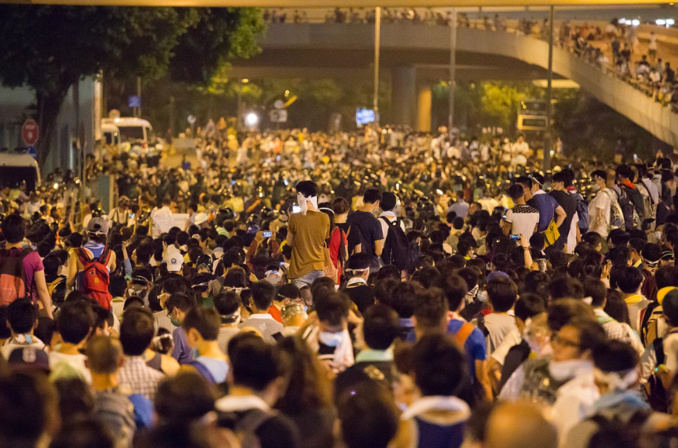In the second quarter, Hong Kong's economy fell 0.4% compared with January-March.
In annual terms, in the III quarter, the economy declined 2.9% after rising 0.5% in the previous quarter.
The pace of the economic downturn exceeded all expert forecasts. For five months, mass protests continued in the city, which led to a political crisis, a decline in investor confidence in the region, and a decline in retail sales and tourism. Now experts are discussing how long the recession will last.
Earlier this month, Hong Kong Minister of Finance Paul Chan unveiled a package of measures totaling about 2 billion Hong Kong dollars ($ 255 million), designed to support the tourism industry and the transport sector. Earlier this week, Chan announced that he considers the recession in the Hong Kong economy “very probable” for the whole of 2019: “It seems to be very difficult to achieve a forecast of GDP growth of up to 1% this year, and, with a high probability, the economy will decline " According to him, the protests caused massive damage to the city’s economy.
The Hong Kong Monetary Authority (HKMA, the de facto central bank) on Thursday cut its key interest rate following the Federal Reserve System (FRS) to 2% from 2.25%. The Hong Kong dollar is pegged to the US dollar, and HKMA follows the Fed policy.
Eddie Yue, who is responsible for monetary policy at HKMA, said that there is currently no significant outflow of capital from Hong Kong. He noted that the Hong Kong dollar as a whole is stable.
source: businessinsider.com
In annual terms, in the III quarter, the economy declined 2.9% after rising 0.5% in the previous quarter.
The pace of the economic downturn exceeded all expert forecasts. For five months, mass protests continued in the city, which led to a political crisis, a decline in investor confidence in the region, and a decline in retail sales and tourism. Now experts are discussing how long the recession will last.
Earlier this month, Hong Kong Minister of Finance Paul Chan unveiled a package of measures totaling about 2 billion Hong Kong dollars ($ 255 million), designed to support the tourism industry and the transport sector. Earlier this week, Chan announced that he considers the recession in the Hong Kong economy “very probable” for the whole of 2019: “It seems to be very difficult to achieve a forecast of GDP growth of up to 1% this year, and, with a high probability, the economy will decline " According to him, the protests caused massive damage to the city’s economy.
The Hong Kong Monetary Authority (HKMA, the de facto central bank) on Thursday cut its key interest rate following the Federal Reserve System (FRS) to 2% from 2.25%. The Hong Kong dollar is pegged to the US dollar, and HKMA follows the Fed policy.
Eddie Yue, who is responsible for monetary policy at HKMA, said that there is currently no significant outflow of capital from Hong Kong. He noted that the Hong Kong dollar as a whole is stable.
source: businessinsider.com



















